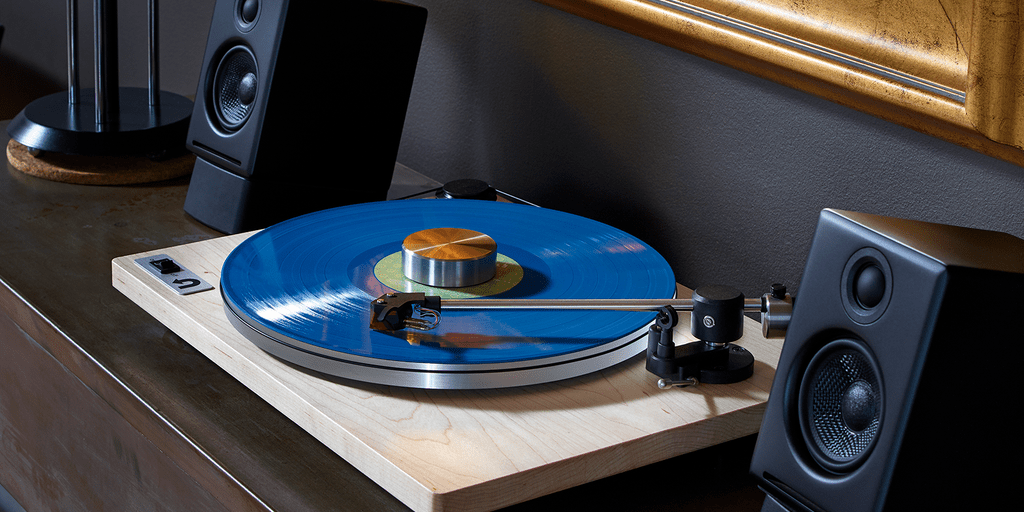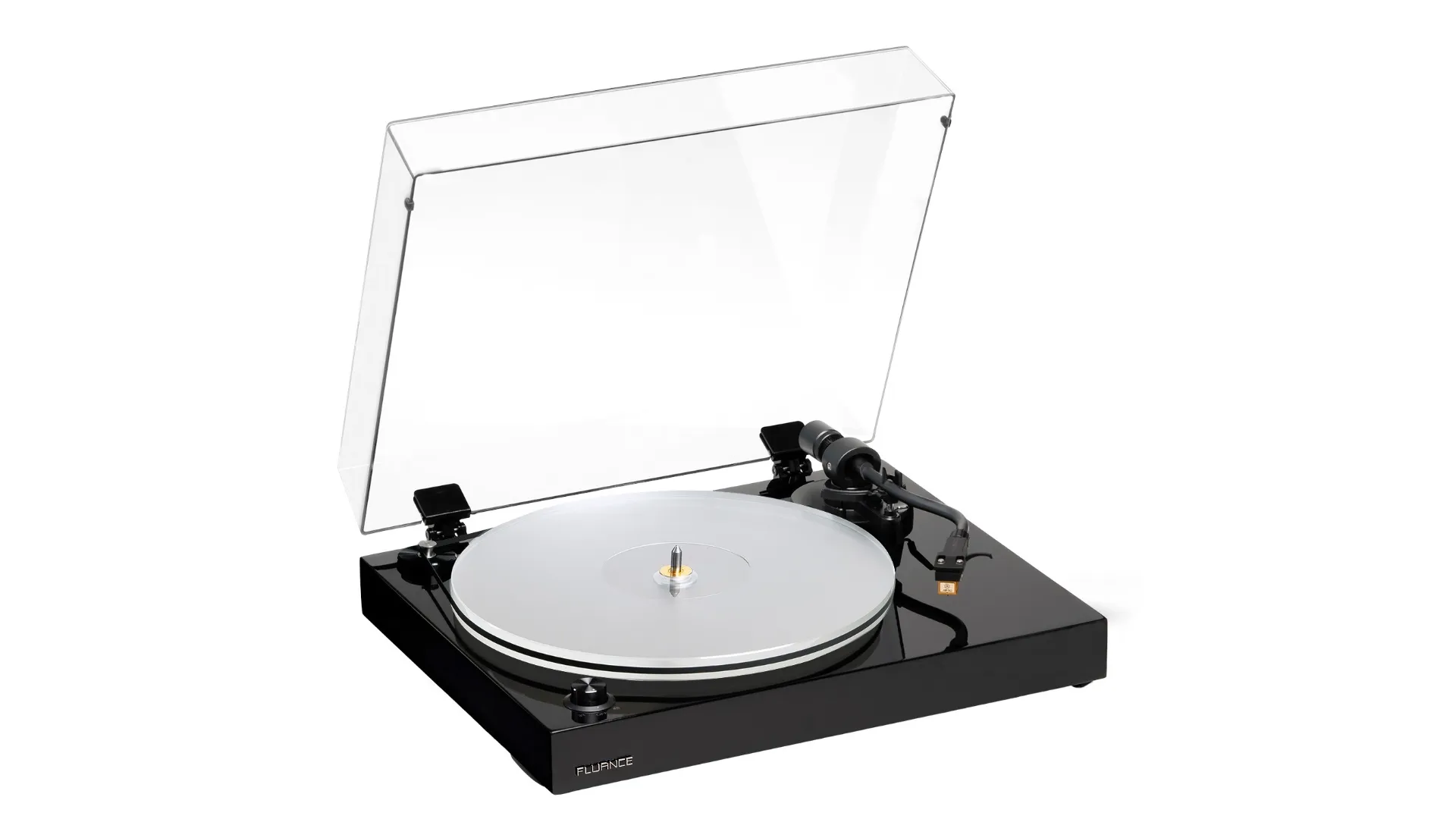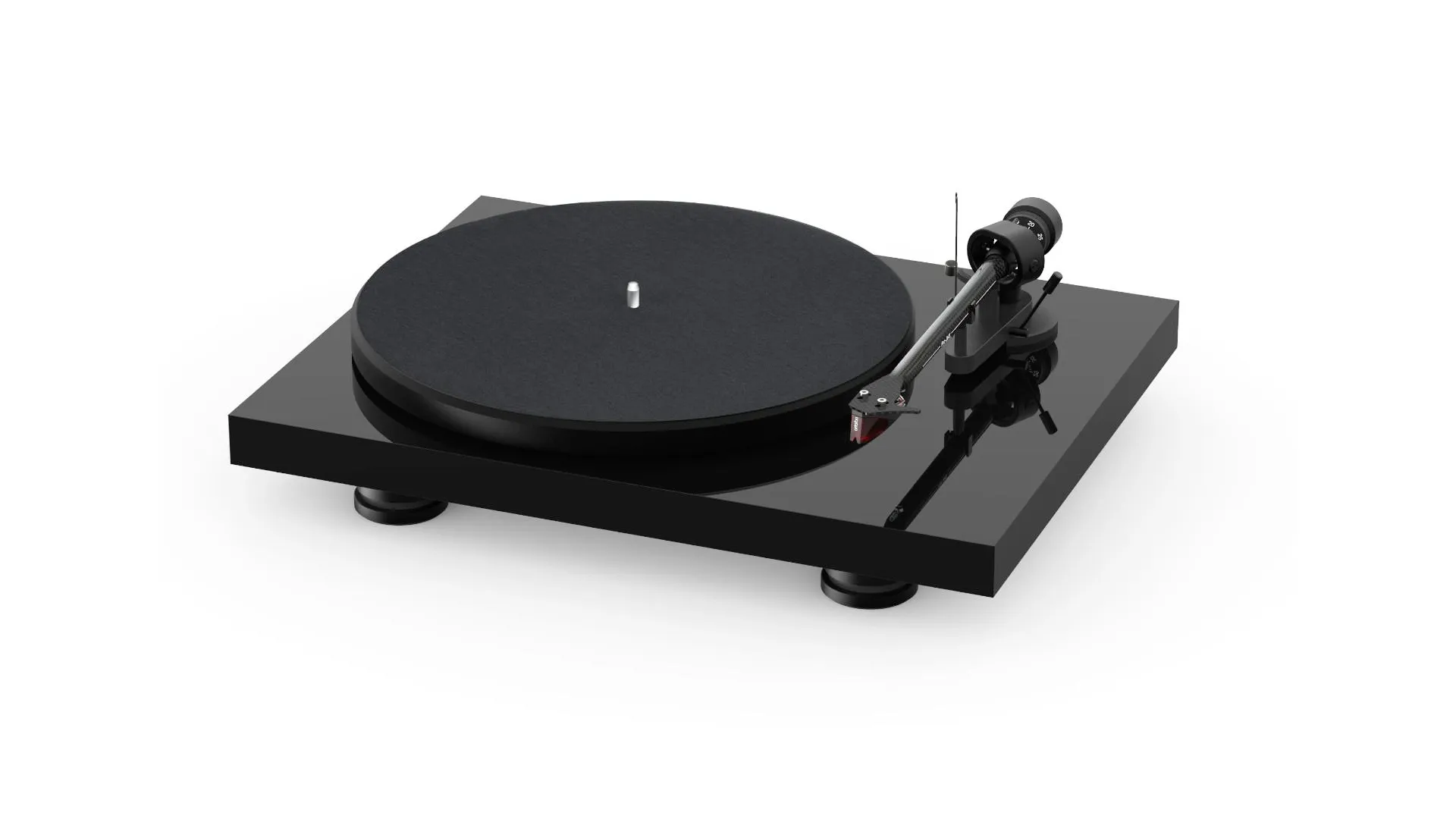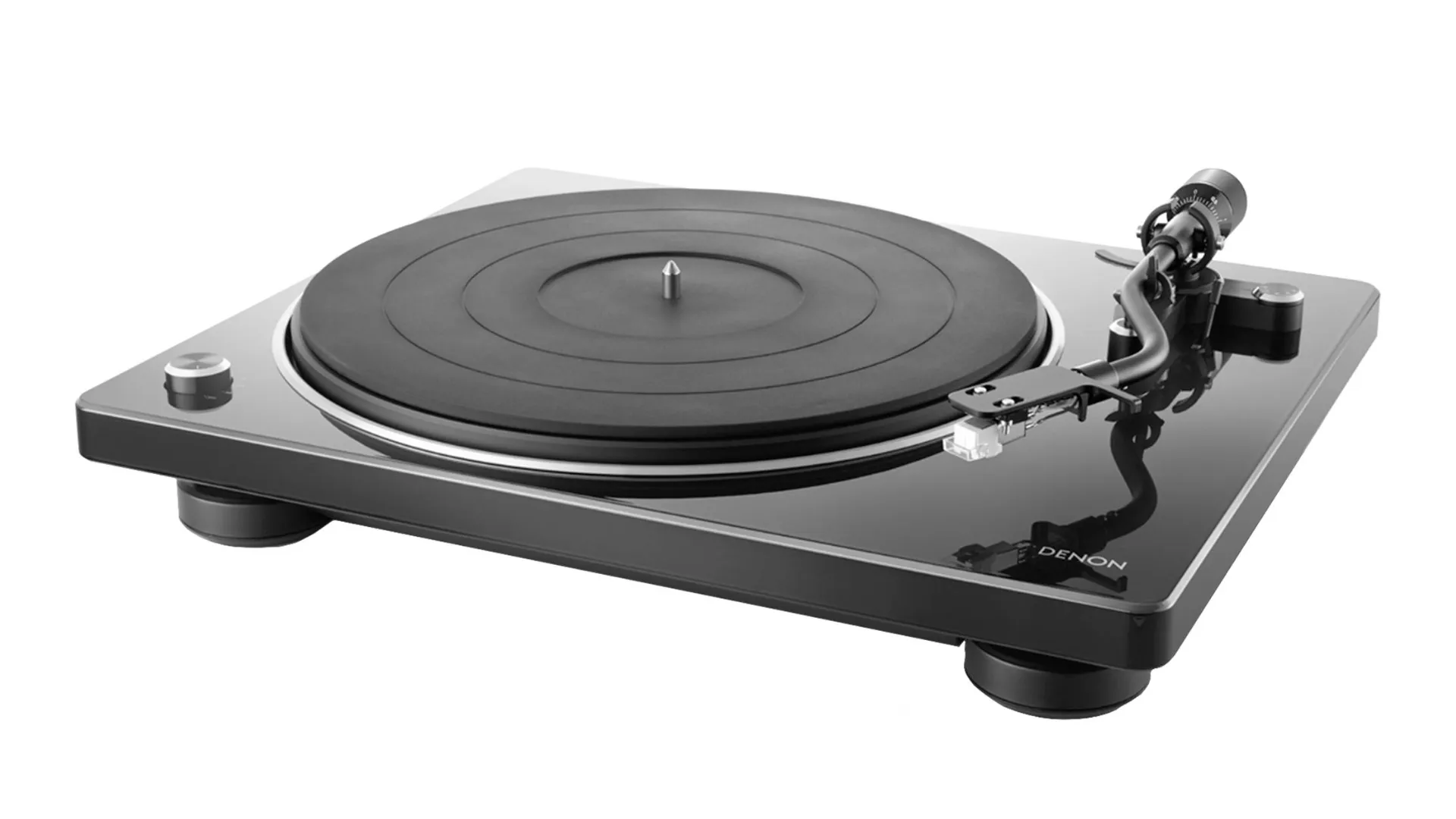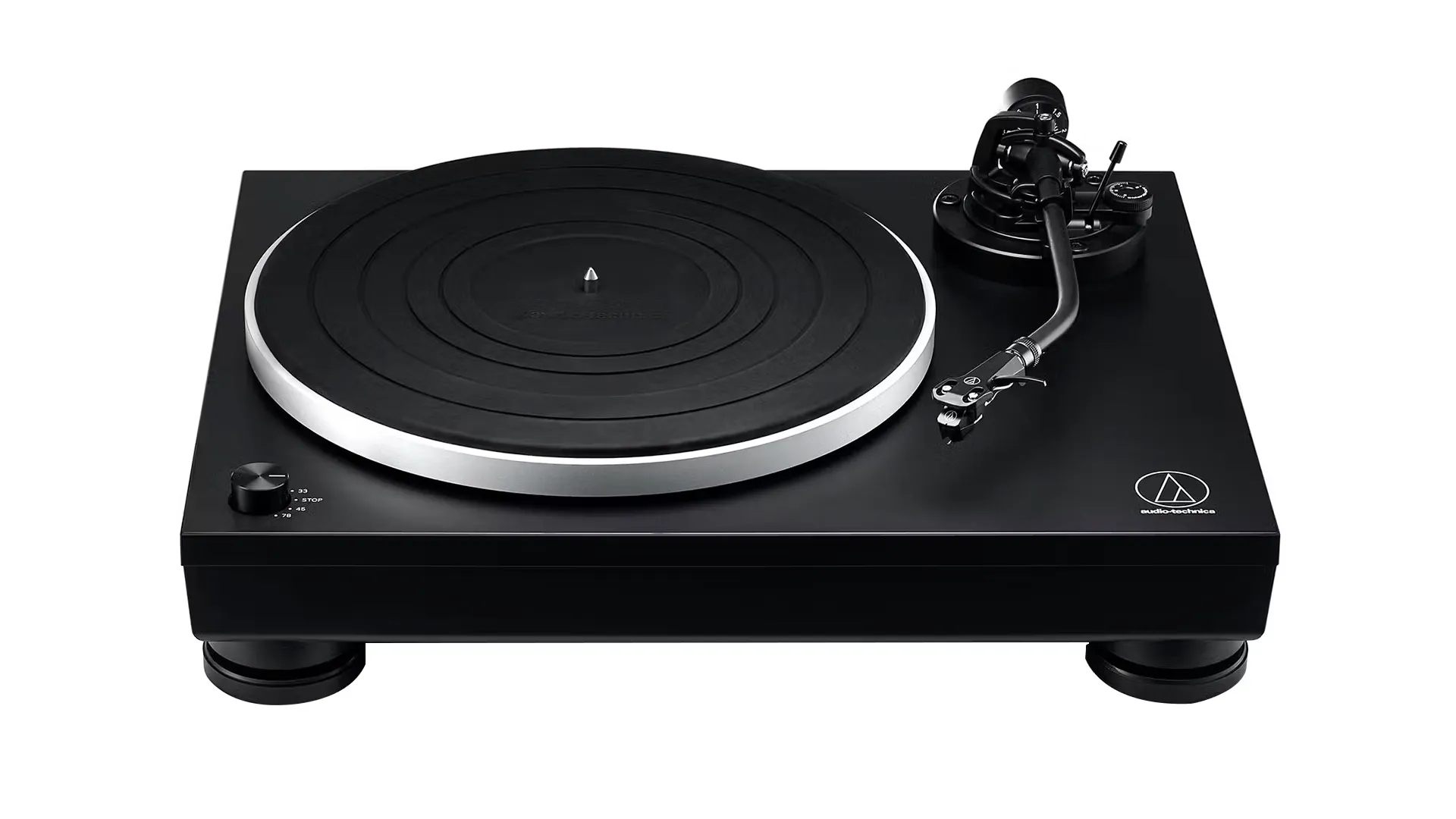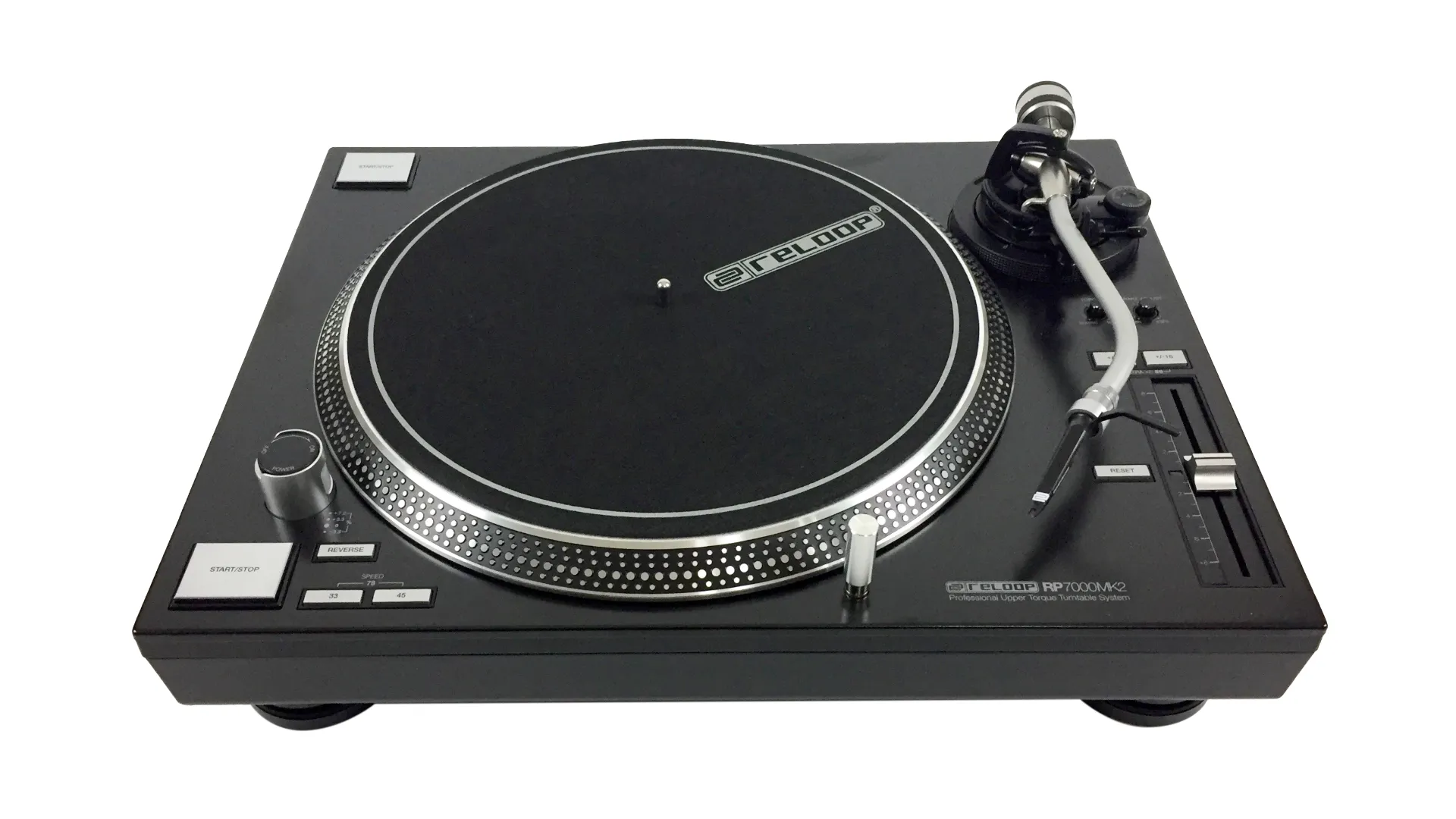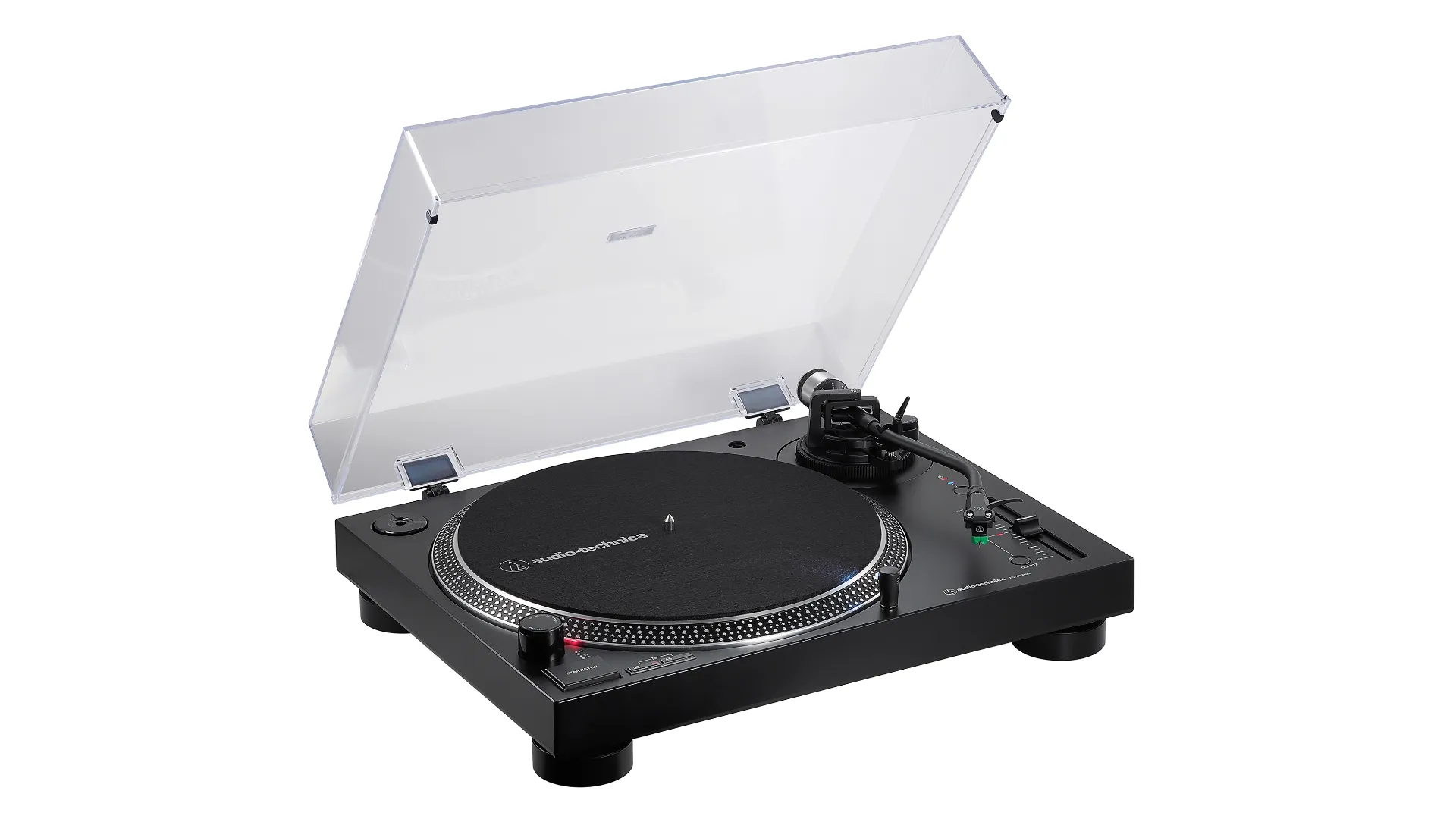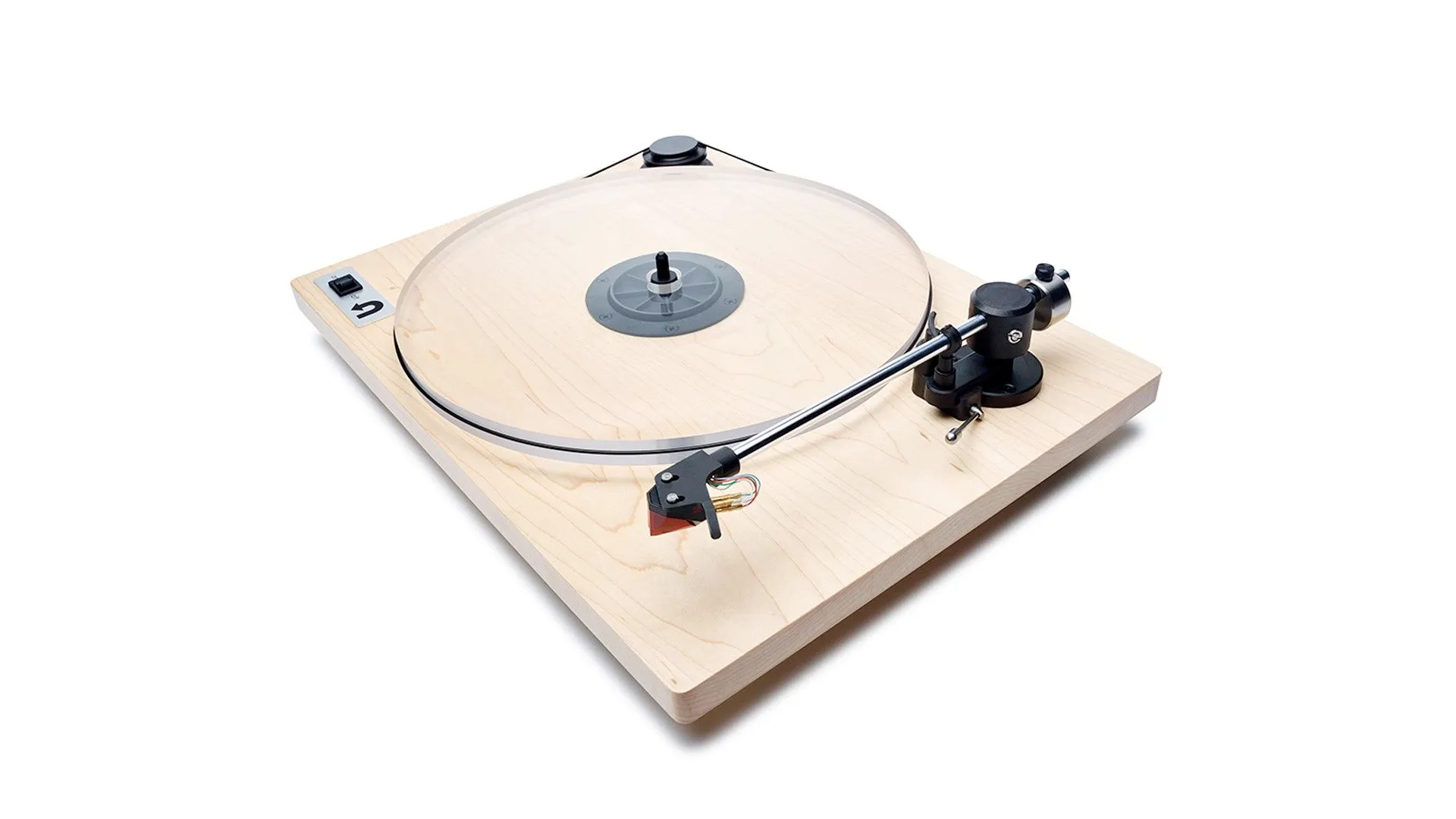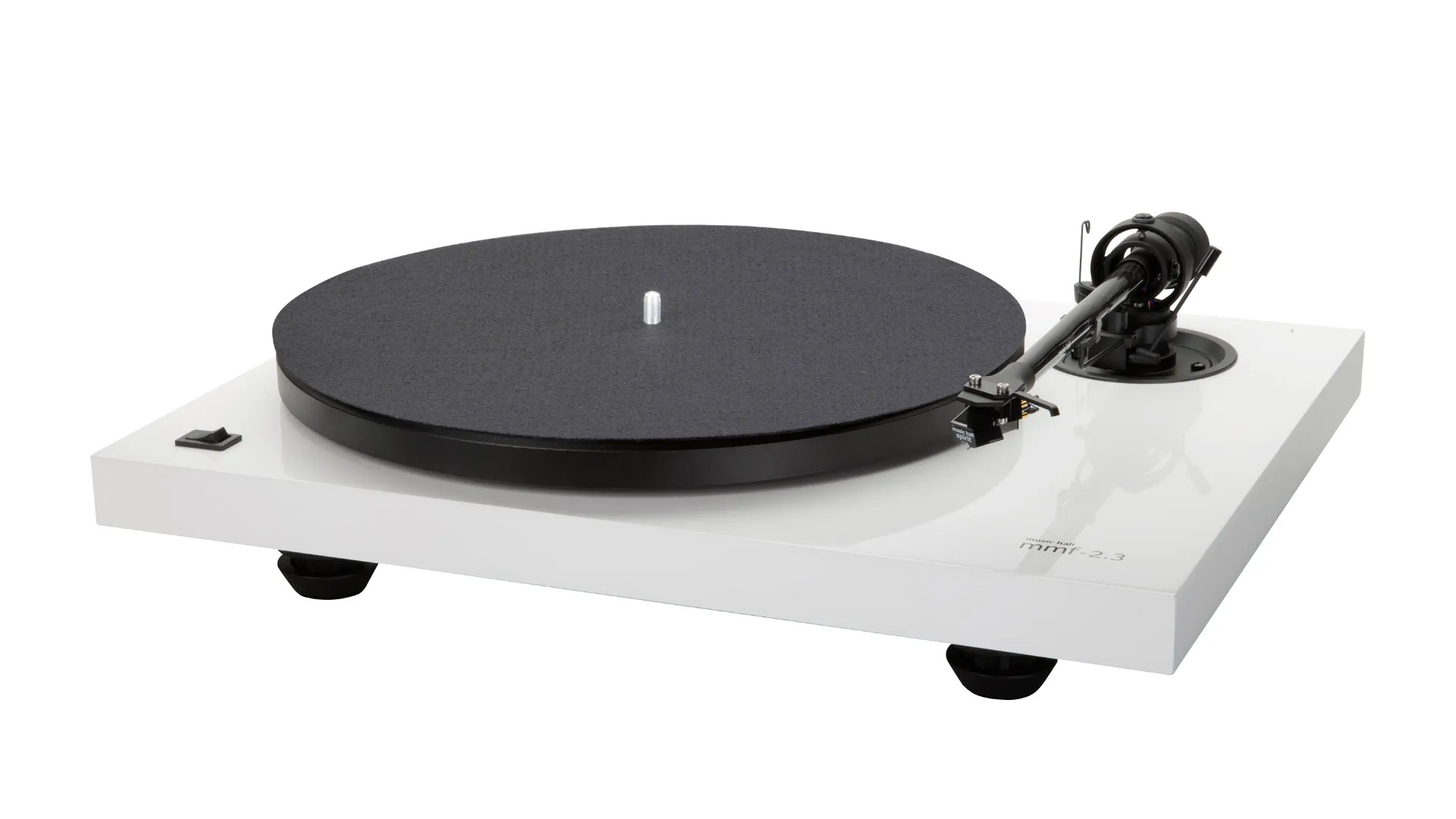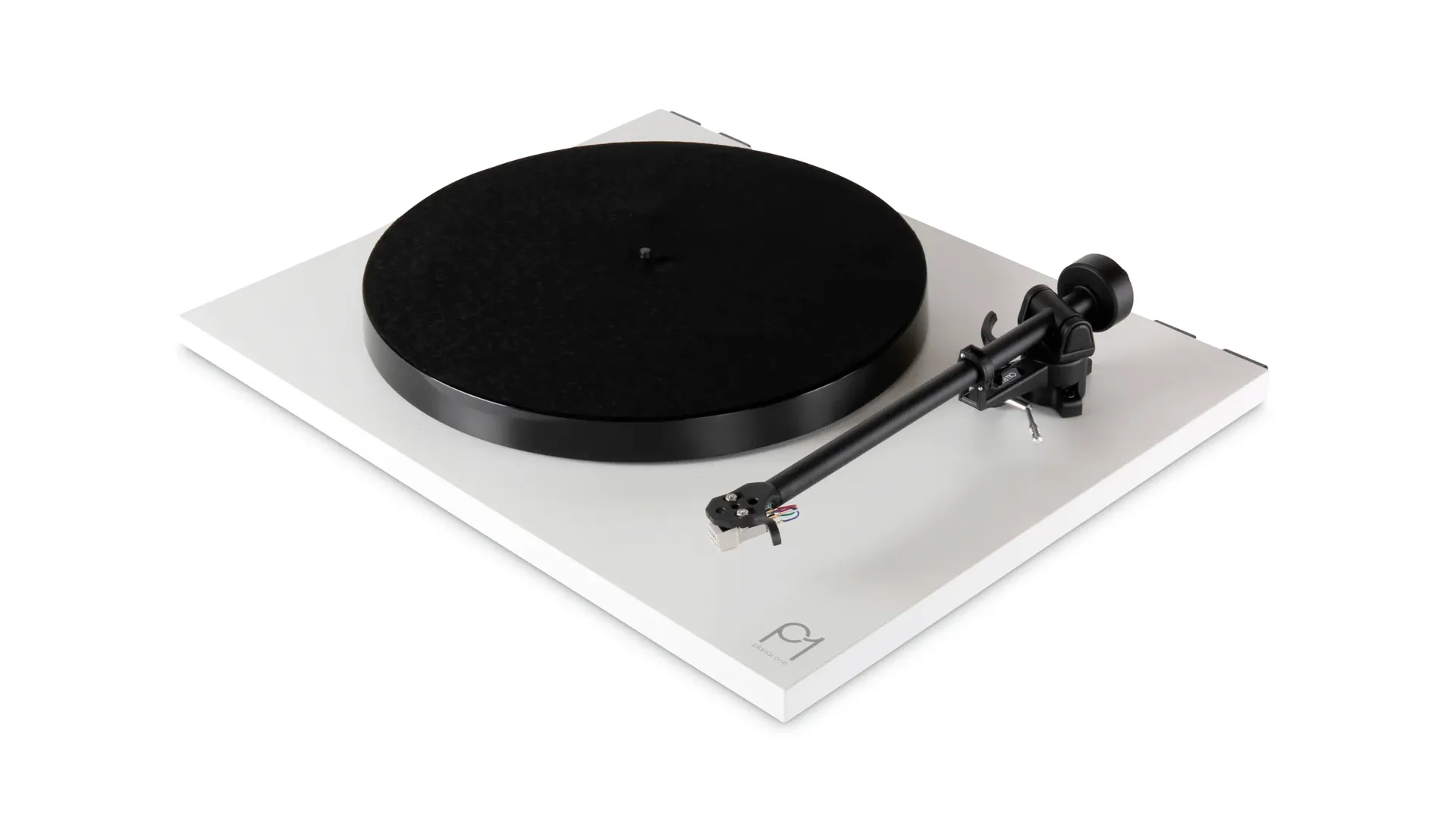As the vinyl revival continues to thrive, more and more music enthusiasts are diving into the world of turntables. Whether you’re a first-time buyer looking to experience the warm, rich sounds of vinyl, a seasoned collector wanting to upgrade your setup, or a DJ needing a reliable tool for your gigs, there’s a turntable out there that fits your budget and requirements.
We have already covered our top recommended turntables for lower budgets. When your budget stretches as far as $500, however, things become much more interesting. We’re no longer limited to mass-produced, OEM turntables that share the same components and are very similar under the hood. Instead, we have some affordable entry-level audiophile turntables that sound better and provide room for upgrading.
We’ve reviewed the most commonly recommended turntables and here you’ll find a comprehensive breakdown of our top picks, each offering great performance and value for money. Plus, we’ve included a handy buyer’s FAQ section towards the end of the guide, answering some of the most common queries to further assist you in making an informed decision.
So, sit back, put on your favorite record, and let’s spin through our shortlisted sub-$500 turntables!
Fluance RT85
- Excellent Ortofon 2M Blue cartridge
- Acrylic Platter
- Automatic stop feature
- Glossy plinth prone to fingerprints
The Fluance RT85 is probably the most commonly recommended sub-$500 turntable for good reason. It is highly regarded for its excellent value, boasting top-tier components and features that are unusual for its price point. The RT85 is equipped with an acrylic platter and an Ortofon 2M Blue cartridge that often goes for $250 on its own.
The RT85 features a beautiful solid MDF plinth, a servo-controlled belt-drive motor with optical sensor and 7-point silicone rubber motor decoupling, providing a very low wow and flutter of 0.07%. It also features a classy S-shaped aluminum tonearm with auto-stop, adjustable counterweight and anti-skate, and spike-type height-adjustable vibration isolation feet.
Like many premium turntables, the RT85 does not come with an integrated preamplifier, necessitating connection to an amp or receiver with a phono input or using a separate pre-amplifier.
It’s worth noting that the company introduced variant of the RT85 in 2022, the Fluance RT85N. The RT85N switches out the Ortofon 2M Blue for a Nagaoka MP-110 cartridge. This new cartridge delivers a warmer, smooth sound with slightly more pronounced bass, which can slightly soften the edge of some instruments.
However, I would personally recommend the original RT85 over the RT85N because the Ortofon 2M Blue is objectively a more advanced cartridge with a nude elliptical stylus that tracks better and with less distortion. However, some listeners will prefer the Nagaoka MP-110’s sound signature, and you can’t really go wrong with either.
Read full review: Fluance RT85
Pro-Ject Debut Carbon EVO
- Height-adjustable and rubber-damped aluminum feet
- Clean design
- No more manual speed change unlike original Debut Carbon
- Inferior cartridge to RT85
- No auto-stop or auto-return
The Pro-Ject Debut Carbon was long heralded as the best turntable around its price point, and the Debut Carbon EVO embodies the maturation of the Pro-Ject line with several improvements across the board. The result is another terrific turntable, though it is still the signature carbon tonearm that really gives it its identity.
Another improvement is the new TPE (thermoplastic elastomer)-damped aluminum feet that are wider and more stable. Pro-Ject uses this material in its more expensive models, so it’s great to see it here. Even better, the Evo feet are height-adjustable, making it a simple matter to level the turntable. The use of three feet (instead of four) also makes it easier to ensure a level positioning on any kind of surface.
While the inner platter and platter bearing have not changed, the outer platter represents another significant upgrade over the original Debut Carbon. The DC used a stamped-steel platter with no damping, whereas the Evo’s platter is thicker stamped steel with a large TPE damping ring around the inner perimeter. That damping ring makes the platter much heavier, so there’s less chance it will vibrate in response to sound from the speakers.
The highly regarded one-piece carbon-fiber tonearm with sapphire bearings is identical to that of its predecessor. Then there’s the cartridge—the European version of the Evo comes with an Ortofon Red, while the US version comes with a Sumiko Rainier. In both cases, you’re getting a slightly cheaper cartridge compared to the Fluance RT85, which makes for a less clean and energetic performance by comparison.
You can’t go wrong by picking the Debut Carbon EVO, and the audiophile community might rank it above the RT85 due to the quality base it provides for future upgrades.
Denon DP-400
- Auto-lift and playback stop
- Built-in phono preamp
- Premium build quality
- Mediocre stock cartridge
- Unique dust cover design has its critics
The Denon DP-400 is a semi-automatic turntable, meaning users have to manually place the stylus onto the disc, similar to other turntables, but with the help of an auto-lift function for the tonearm at the end of a record.
Improvements from the DP-300F are evident, as the DP-400 successfully resolves some of the issues that critics had with the previous model. It now has open and upgradeable power and signal connections, a ground point, and a much-improved speed monitoring function. This function works exceptionally well, with no movement observed on the strobe disc used for speed checking.
The knobs on the DP-400 stand out for their robustness compared to lower-priced counterparts. They, along with the power on/off knob, the speed selector, and the anti-skating dial all have a premium feel. The counterweight, another notable upgrade from the 300F, allows for remarkably precise micro-adjustments.
There’s also a significant improvement in the tone arm clamp with this model, with a fully functional clamp integrated into the tone arm rest. The DP-400 features an S-shaped tonearm, adding a touch of class.
One primary critique lies in the cartridge. It is the same DSN-85 stylus and cartridge combo found in the DP-300F model, leaving room for improvement. However, the DP-400 comes with the presumption that enthusiasts would prefer to select their own cartridge. It seems Denon prioritized producing a better overall product rather than including a higher-quality cartridge.
Ultimately, the Denon DP-400 delivers a promising performance for its price. It competes with other turntables in this sub-$500 price range, such as the Orbit Special and Debut Carbon EVO, particularly if users are willing to invest in a cart upgrade.
Audio Technica AT-LP5X
- Detailed and assured sound
- Distinctive J shape tonearm
- Built-in preamp and USB out
- Unremarkable design
- Faces tough competition
The Audio Technica’s AT-LP5X holds its own as one of the few decent direct-drive offerings within this price range. As a refined successor to its predecessor, the AT-LP5, it comes upgraded with a quartz-locked DC servo direct drive motor that offers 33, 45 and now 78 RPM speeds.
The core of the AT-LP5X’s sound experience lies in its rich and dynamic tonality that brings a sense of intimacy and realism to the music, possessing an ability to capture the raw emotion in vocals and the subtlety in instrumentals. Its tonal balance is spot-on, providing a broad spectrum of sound that pleases both the ears of casual listeners and the exacting demands of audiophiles.
Its build quality is another high point, with a sturdy and sleek design that serves as an aesthetic upgrade to any living space. While it is no doubt a very close cousin of the Audio Technica AT-LP140XP, the AT-LP5X strips away the DJ controls and exists as a lifestyle-oriented turntable for music listening.
The removal of DJ-focused extras means the AT-LP5X suffers less from high-frequency noise and vibrations compared to the AT-LP140XP, lending to a cleaner overall sound. The direct drive mechanism provides stable speed, but some purists will prefer the charm of a belt drive.
Overall the AT-LP5X can’t quite match the value for money of the Ortofon 2M blue equipped RT85 or the premium build quality of the Pro-Ject Debut Carbon EVO. However, it has its own wins by having a built-in phono preamp and a USB port for ripping music. As mentioned, it’s a lifestyle turntable that might not be best-in-class among audiophiles who are laser-focused on the core features, but it’s an excellent package overall.
- Powerful direct drive motor
- High-resolution pitch fader
- Suitable for pro DJ use
- Just as good as more expensive equivalents from Technics and Pioneer
- Cartridge not included
- Dust cover not included
DJs can’t perform all that DJ trickery using any turntable. While sound quality matters, the ability to mix and scratch records require a specific type of turntable.
The turntable has to be direct-drive with a motor that produces a high amount of torque. This allows the platter to get up to speed quickly. You also want things like adjustable pitch controls and strobe dots on the platter.
Unfortunately, these features don’t come cheap, and typically slightly exceed our $500 budget. Sure, there are technically budget DJ vinyl spinners like the Pioneer PLX-1000, Reloop 4000 MK2 and Audio-Technica AT-LP140XP, but the consensus is clear: if you are serious about DJing, you need to get one of the Super OEMs.
Discounting various used models, the three Super OEMs that dominate today’s market are the Pioneer PLX-1000, the Reloop RP-7000 MK2, and the Audio Technica AT-LP1240. Frankly, any of these models will do the trick, so it’s just a matter of which one you can afford.
At the time of writing, the Reloop RP-7000 MK2 was the only one discounted to below $500 and was placed in this buyer’s guide by default. However, the recommended retail price is higher, so it may exceed our budget at the time of reading.
Audio-Technica AT-LP120XBT
- Packed with features, including Bluetooth
- Variable pitch control with quartz speed lock
- Easy to use
- Less fidelity than audiophile-focused turntables
- DJ styling but not a great DJ turntable
If you’re looking for a jack-of-all-trades, master-of-none kind of turntable, the AT-LP120XBT is a good bet, and as a bonus, it is also the cheapest record player on this list.
The AT-LP120XBT is the only turntable on our list to feature Bluetooth connectivity, allowing you to wirelessly connect to a receiver or speakers. Now Bluetooth and record players are a bit of an oxymoron, but there is a market for it.
In addition to this standout feature, it has a USB port for digitizing records, a built-in selectable phono preamp, and a DC servo motor with adjustable dynamic anti-skate control and selectable 33/45/78 RPM speeds.
The direct-drive DC servo motor with quartz lock actually makes it possible to DJ with, which you might have presumed given the turntable’s DJ-oriented styling. However, it’s worth noting that unlike a Super OEM it isn’t a great turntable to DJ with, because it lacks the necessary torque. It will be adequate for mixing and light scratching, but nothing more than that.
Now if you don’t need features like a USB port, wireless connectivity, or DJ potential, you will definitely be better off getting a more straightforward record player like the Fluance RT85 which sounds significantly better. But the AT-LP120XBT is a decent entry-level fully manual turntable that is packed with features that may or may not be necessary depending on the user.
U-Turn Audio Orbit Special
- Assembled in the USA with US lumbar
- Acrylic platter
- Have to manually change speeds by moving belt
- Non-adjustable anti-skate
U-Turn was born out of a Kickstarter crowdfunding campaign in 2012 and made a name for itself with its highly affordable turntables. The Orbit Special sits at the top of their lineup and its higher price tag over the Orbit Basic and Orbit Plus is justified by its superior base, higher-end cartridge and the inclusion of a cue lever.
Featuring a solid hardwood plinth of flat-cut maple or rift walnut and a clear acrylic platter, this minimalist turntable is a thing of beauty. The external belt drive can spin the platter at 33⅓, 45 RPM, and eliminates motor noise.
It features the same cartridge found in the Pro-Ject Debut Carbon, the Danish Ortofon 2M Red. The Precision OA2 gimbal tonearm has accurate tracking and minimal distortion. Together, they produce a clean, detailed and vibrant sound.
With factory set anti-skate, setup is relatively simple and you’ll only have to worry about adjusting the counterweight correctly. You’ll also have to run it through an external phono preamp, although U-Turn does offer a model of the Orbit Special that houses a built-in preamp.
Music Hall MMF 2.3
- 8.6" Carbon fiber tonearm
- VTA adjustment
- Mediocre stock cartridge
Music Hall might be better known for their high-end turntables, but the MMF 2.3 often draws comparisons with the Pro-Ject Debut Carbon EVO for being an excellent starter turntable.
It features an adjustable tonearm that means you can adjust the relative angle of the stylus to the groove. This is technically known as adjusting the Vertical Tracking Angle (VTA). While this isn’t an essential feature, many turntable enthusiasts like to adjust the VTA until things sound best.
Besides that, the Music Hall MMF 2.3 has leveling feet that can be adjusted to compensate for small inconsistencies across a surface. This makes it more forgiving for those who don’t have a perfectly flat surface to place their turntable on.
Overall the MMF 2.3 is an excellent choice that struggles to truly stand out in a crowded entry-level-audiophile market of record players.
Rega Planar 1
- Contemporary styling
- Coveted RB110 tonearm with low friction bearings
- Quiet 24V motor
- Hands-on speed change with need to remove platter
- Barebones turntable
Made by a small named British firm Rega Research Ltd., the award-winning Planar 1 is a beautifully crafted turntable that is a tinkerer’s dream thanks to its low price and huge upgrade potential.
On paper, the Planar 1 shouldn’t sound as good as it does out of the box. The Rega Carbon cartridge is a rebranded AT-91 and the RB110 tonearm is great but shouldn’t be a match for the Debut Carbon’s carbon-fiber tonearm. And yet, it produces a sound that’s just as rich while costing much less (at least in the UK). Overall, it seems the better build quality of the Planar 1 lends itself to an incredible sound.
Given the high-quality thermoset plinth, many Planar 1 owners enjoy upgrading their Planar 1 over time. Upgrading the Rega Carbon cart should be the first priority, but over time you can go on to replace the sub-platter, platter, arm, belt, and pulley. Rega themselves lay out a sensible upgrade path through their Performance Pack.
Buyer FAQs
Q1: What makes a good turntable?
A: A good turntable is determined by several key factors: build quality, sound quality, ease of use, and additional features. A solidly built turntable will be durable and stable, preventing any unwanted vibrations. High sound quality often comes from a good stylus, cartridge, and tonearm. Also, easy setup and use are essential for beginners, and additional features such as USB connectivity and Bluetooth can offer more versatility.
Q2: Do I need a preamp for my turntable?
A: It depends on the turntable. Some turntables have built-in preamps, while others do not. If your turntable does not have a built-in preamp, you will need a separate preamp or an amplifier or receiver with a built-in phono preamp to amplify the signal to a level that your speakers or amplifier can use.
Q3: What’s the difference between a belt-drive and a direct-drive turntable?
A: The key difference is how the motor connects to the platter. A belt-drive connects the motor to the platter with an elastic belt, providing good sound quality by isolating the platter from motor vibrations. A direct-drive turntable connects the motor directly to the platter, offering more torque and consistent speeds, often preferred by DJs for scratching and other techniques.
Q4: Do expensive cartridges make a difference?
A: Yes, but the extent can depend on the rest of your setup. More expensive cartridges provide better sound quality and last longer than cheaper ones, but they just make up one part of a larger system. Oftentimes, upgrading the speakers or preamp can yield greater sonic improvements for the money.
Q5: Are USB turntables good?
A: USB turntables can be a great choice if you want to digitize your vinyl records. They typically come with software that allows you to record your vinyl records onto your computer. However, digitizing records well is a meticulous task that involves a lot of preparation.
Q6: Can I upgrade parts of my turntable later?
A: Yes, many parts of a turntable can be upgraded, such as the cartridge, stylus, and belt. However, the potential for upgrades depends on the specific turntable model and brand. While many people will choose a turntable over another for its upgrade room like the Pro-Ject Debut Carbon Evo over the Fluance RT85, you should only do so if you are convinced you will upgrade and not just forget about it or buy a higher-end turntable down the line.
Q7: How often do I need to replace the stylus?
A: It’s generally recommended to replace the stylus every 1,000 hours of playtime. However, this can depend on the specific stylus, the tracking force, and how well you maintain your records and stylus.
Q8: How do I maintain my turntable?
A: Regular cleaning is important, both for the turntable and your records. Use a carbon fiber brush for your records and a stylus cleaning solution for the stylus. Make sure the turntable is level for optimal performance, and periodically check and adjust the tracking force and anti-skating settings if needed.
Q9: Is it worth buying a vintage turntable?
A: Vintage turntables can offer excellent sound quality and aesthetics. However, they may require more maintenance, and parts can be harder to find. Also, the condition can greatly vary, so it’s essential to buy from a reputable source if you’re not comfortable assessing the condition yourself.
Wrapping Up
Remember that choosing the right turntable is a personal journey. While technical specifications, build quality, and value for money are all significant considerations, what matters most is how your chosen turntable complements your lifestyle, musical tastes, and listening habits.
The Fluance RT85 came out as our top pick for the audiophile. It features the best stock cartridge while having a useful auto-stop feature that many competitors lack. The Debut Carbon EVO is another standout offering, which will better suit tinkerers who want to explore upgrading themselves.
The Denon DP-400 and Audio Technica AT-LP5X are both great lifestyle turntables thanks to their extra convenience features and built-in phono preamps. This means you can plug them directly into your amp/receiver or powered speakers without having to purchase anything extra. Of course, you also have the option to bypass the built-in preamp if desired.
Besides these four models, we covered a few other models that will appeal to more specific buyers. We hope this guide has made your decision-making process a little easier and a lot more enjoyable.

